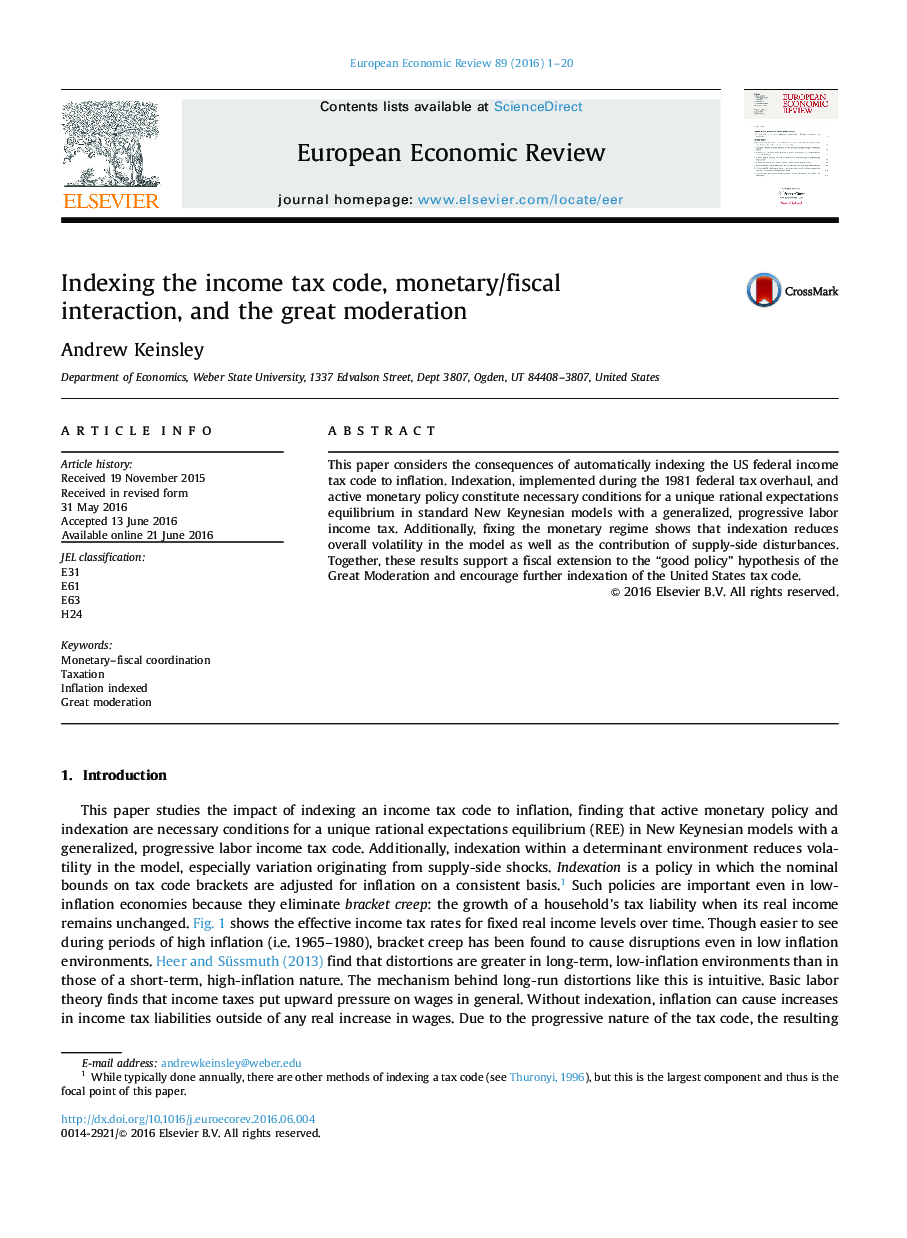| Article ID | Journal | Published Year | Pages | File Type |
|---|---|---|---|---|
| 5066441 | European Economic Review | 2016 | 20 Pages |
Abstract
This paper considers the consequences of automatically indexing the US federal income tax code to inflation. Indexation, implemented during the 1981 federal tax overhaul, and active monetary policy constitute necessary conditions for a unique rational expectations equilibrium in standard New Keynesian models with a generalized, progressive labor income tax. Additionally, fixing the monetary regime shows that indexation reduces overall volatility in the model as well as the contribution of supply-side disturbances. Together, these results support a fiscal extension to the “good policy” hypothesis of the Great Moderation and encourage further indexation of the United States tax code.
Related Topics
Social Sciences and Humanities
Economics, Econometrics and Finance
Economics and Econometrics
Authors
Andrew Keinsley,
